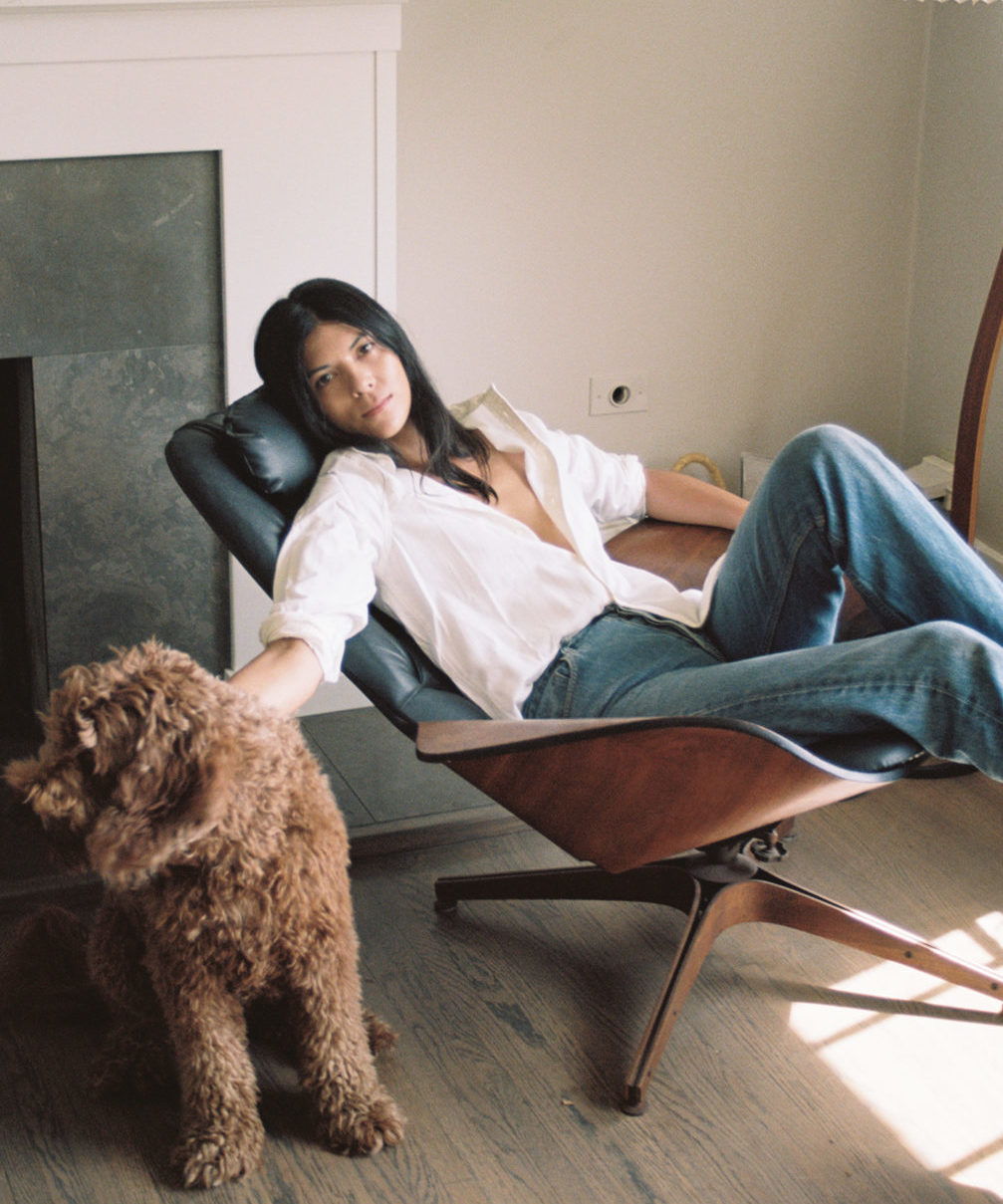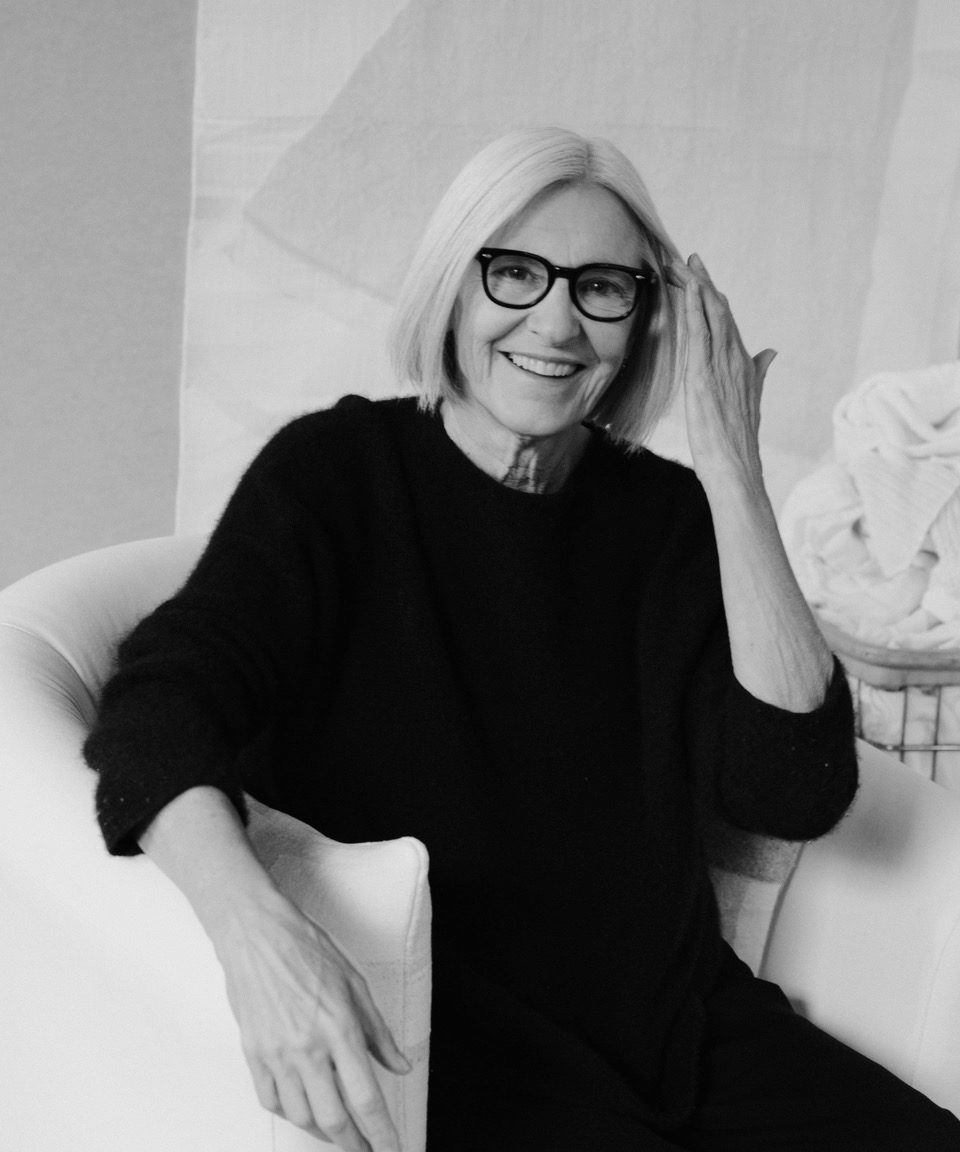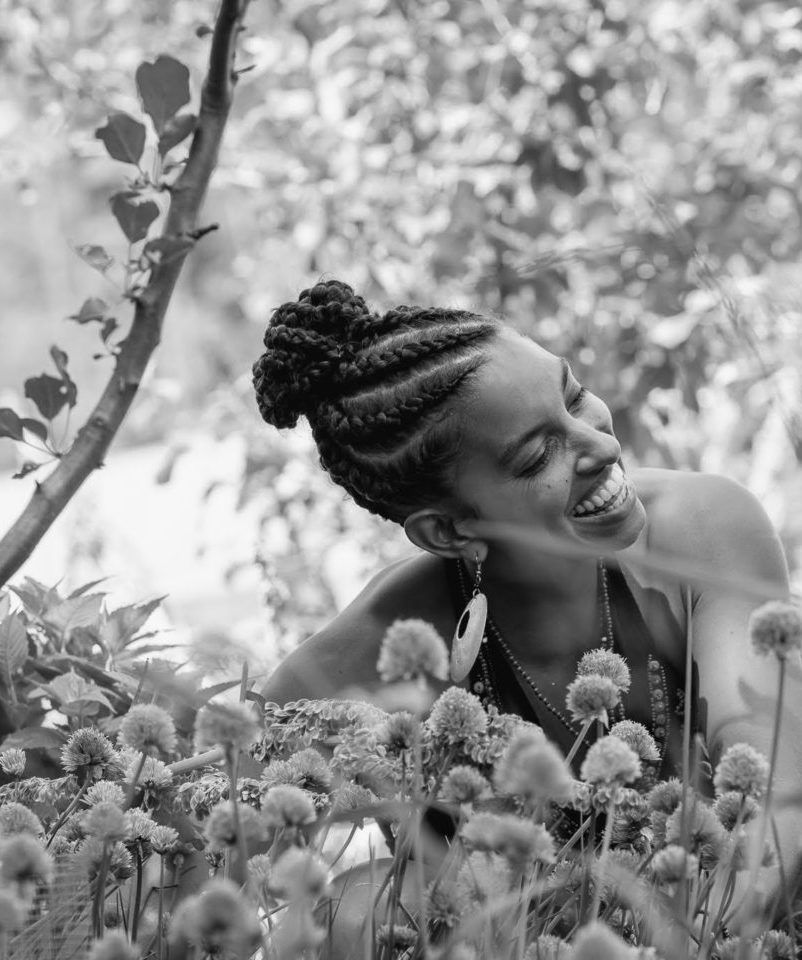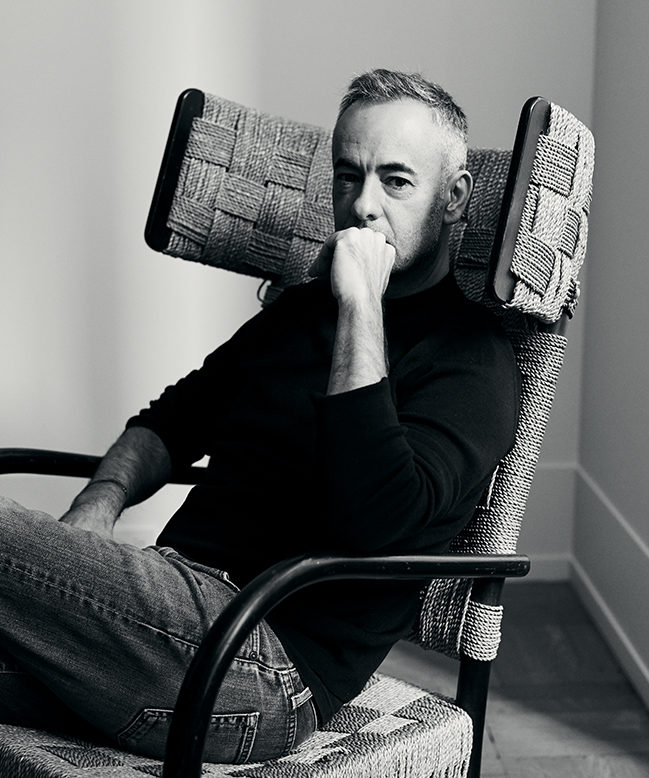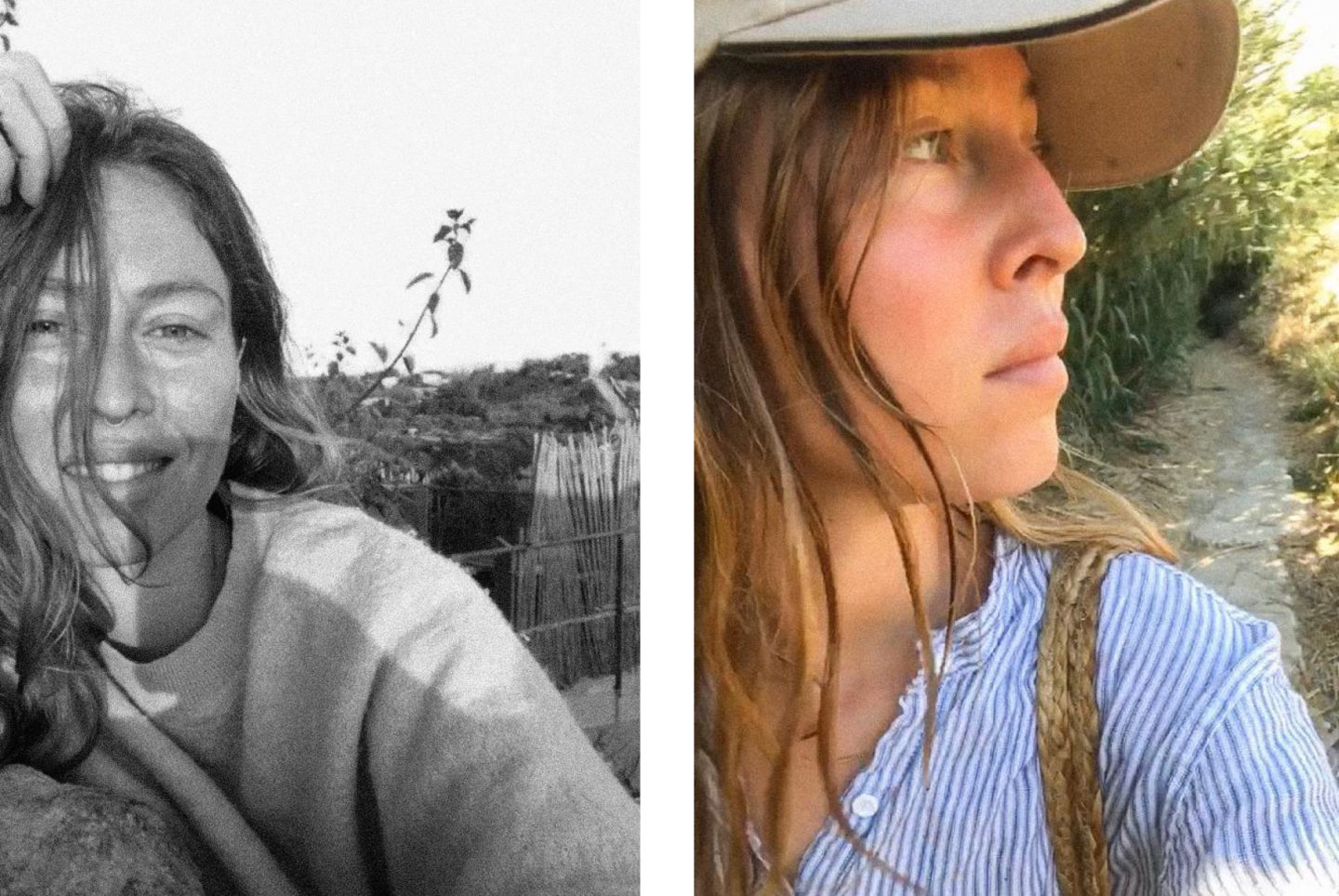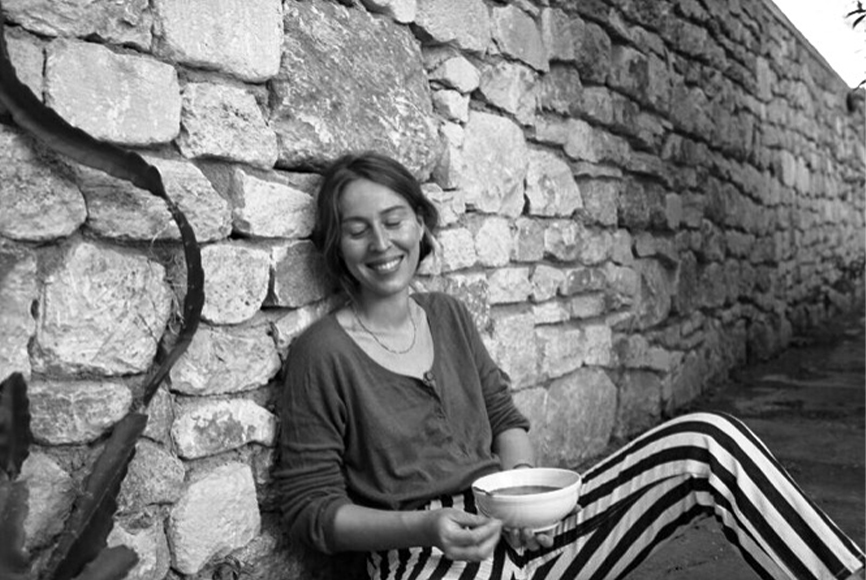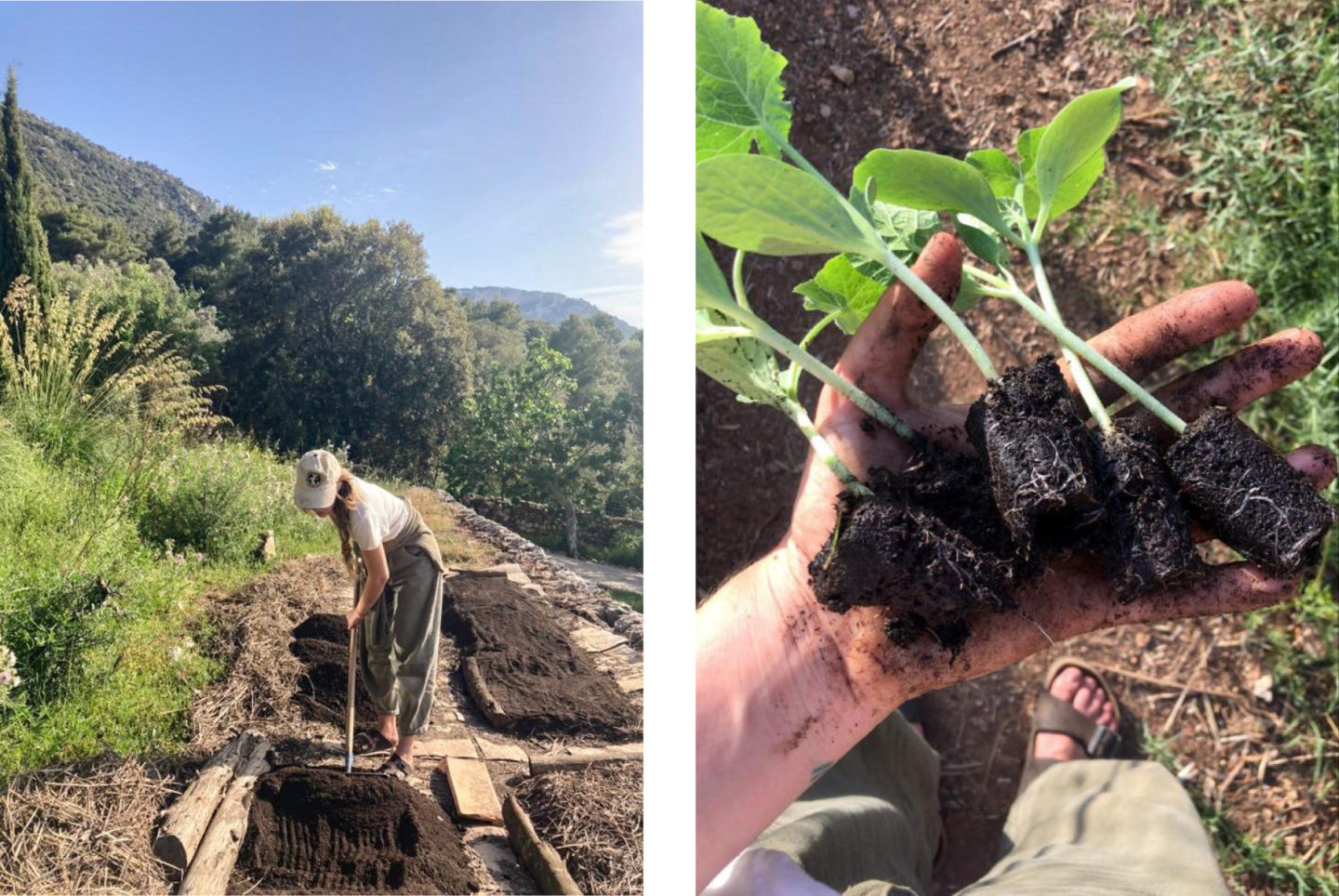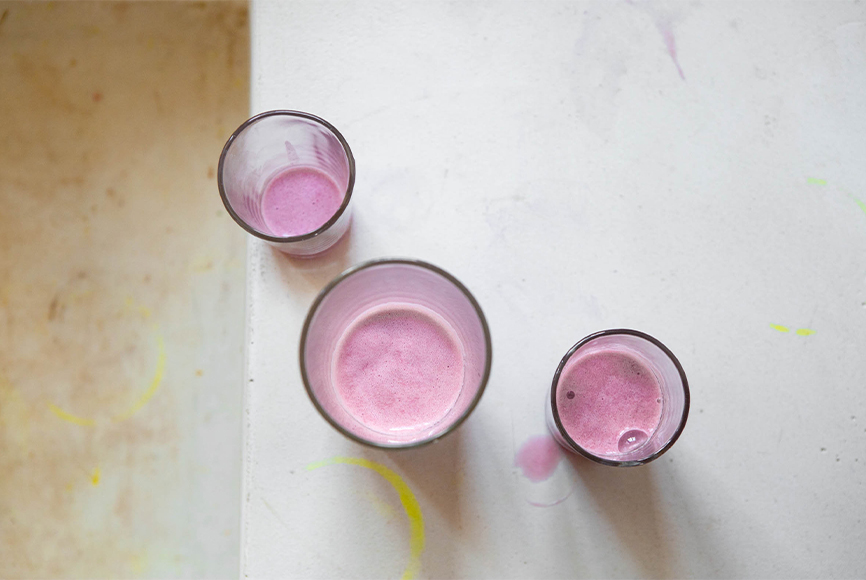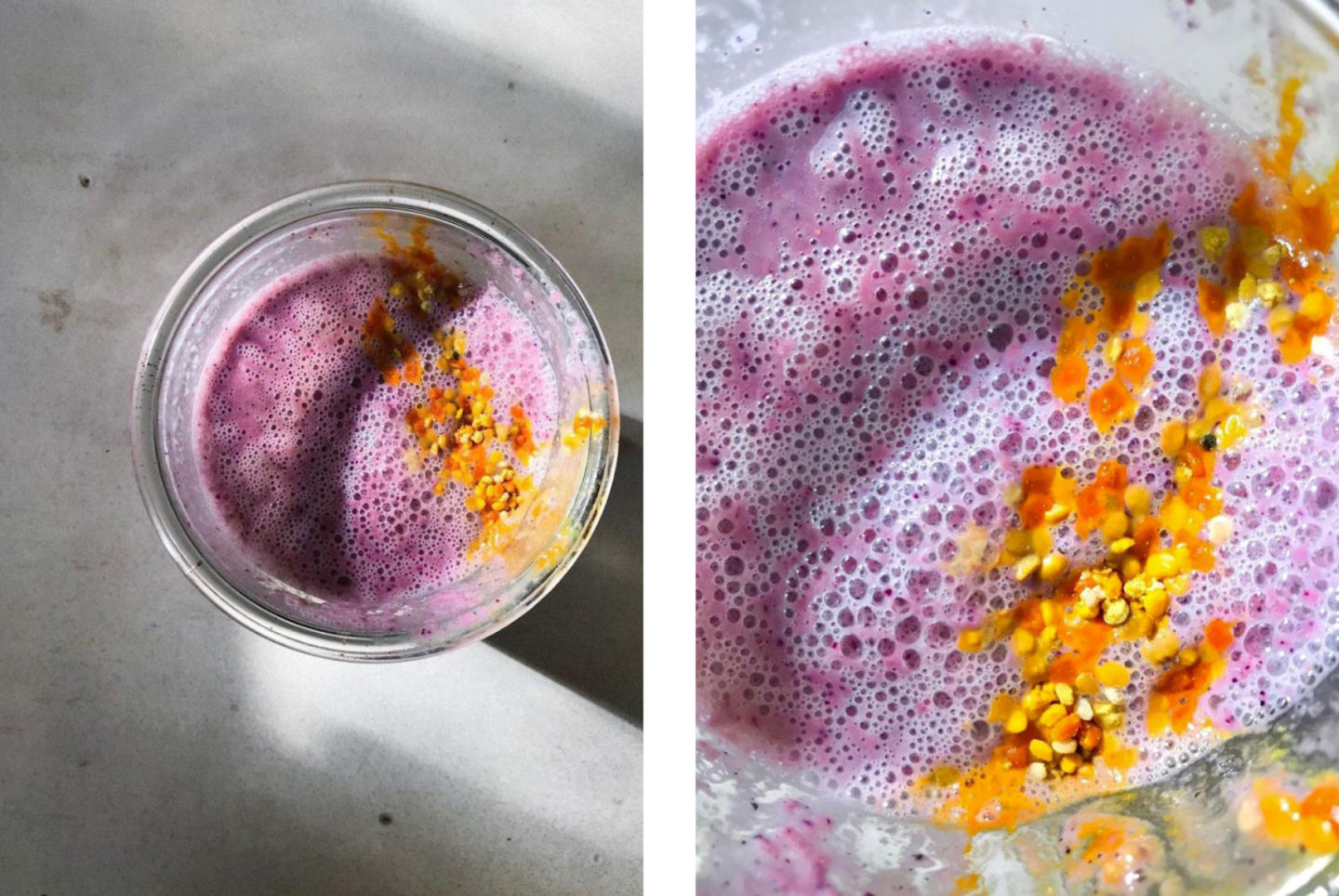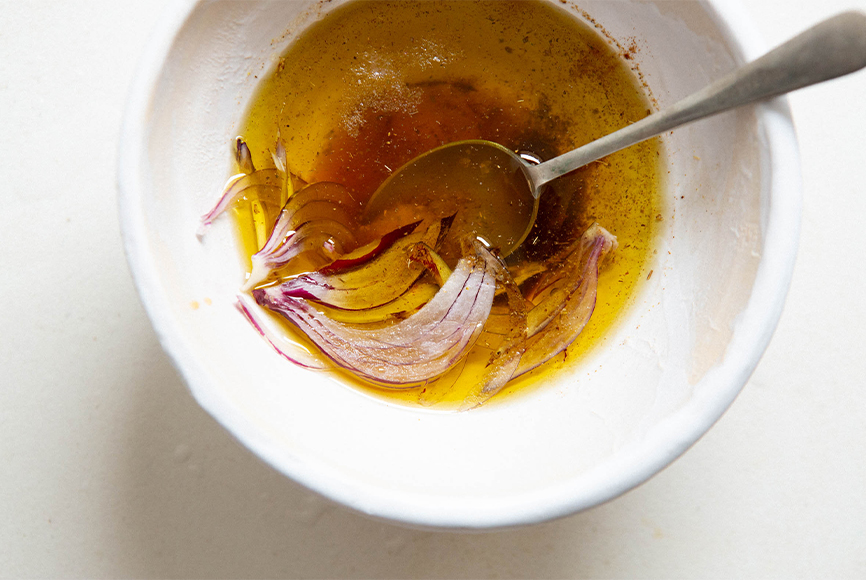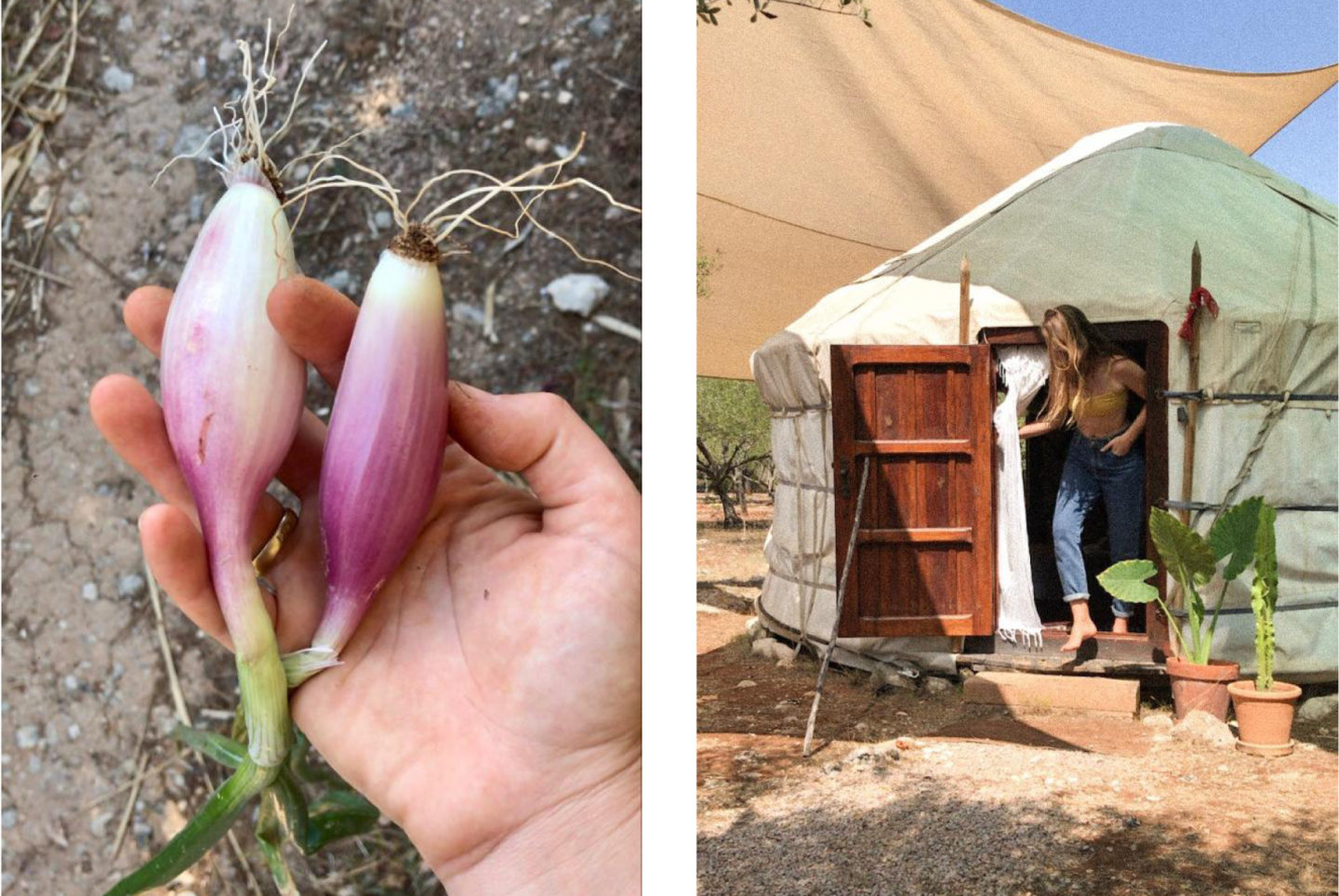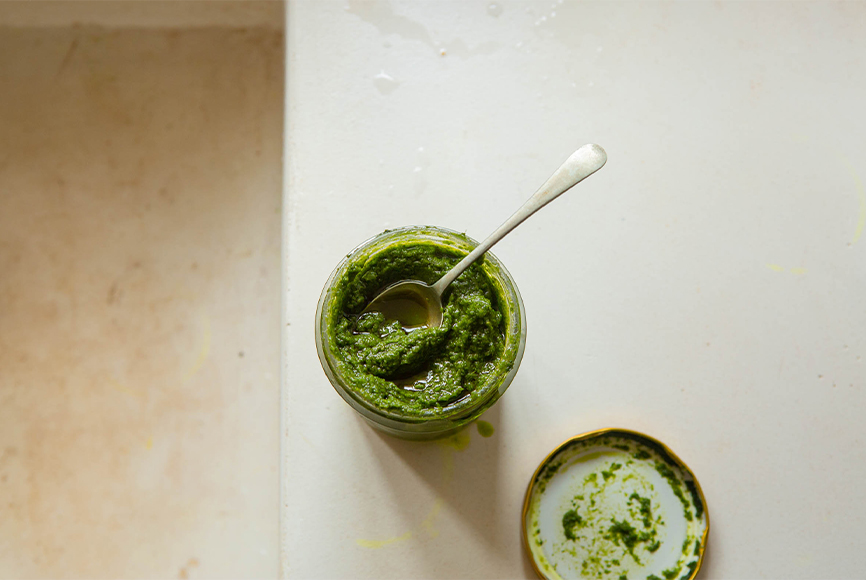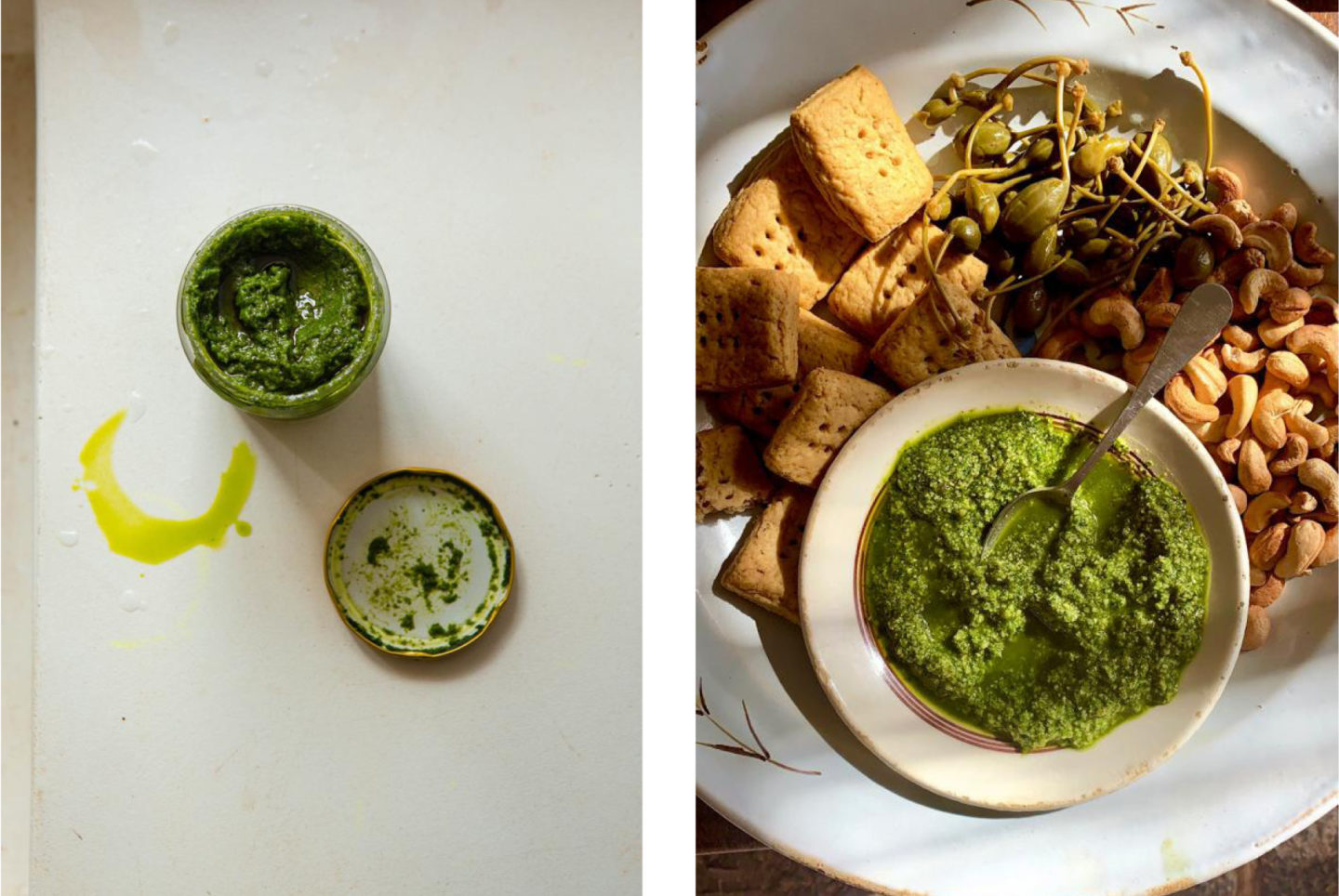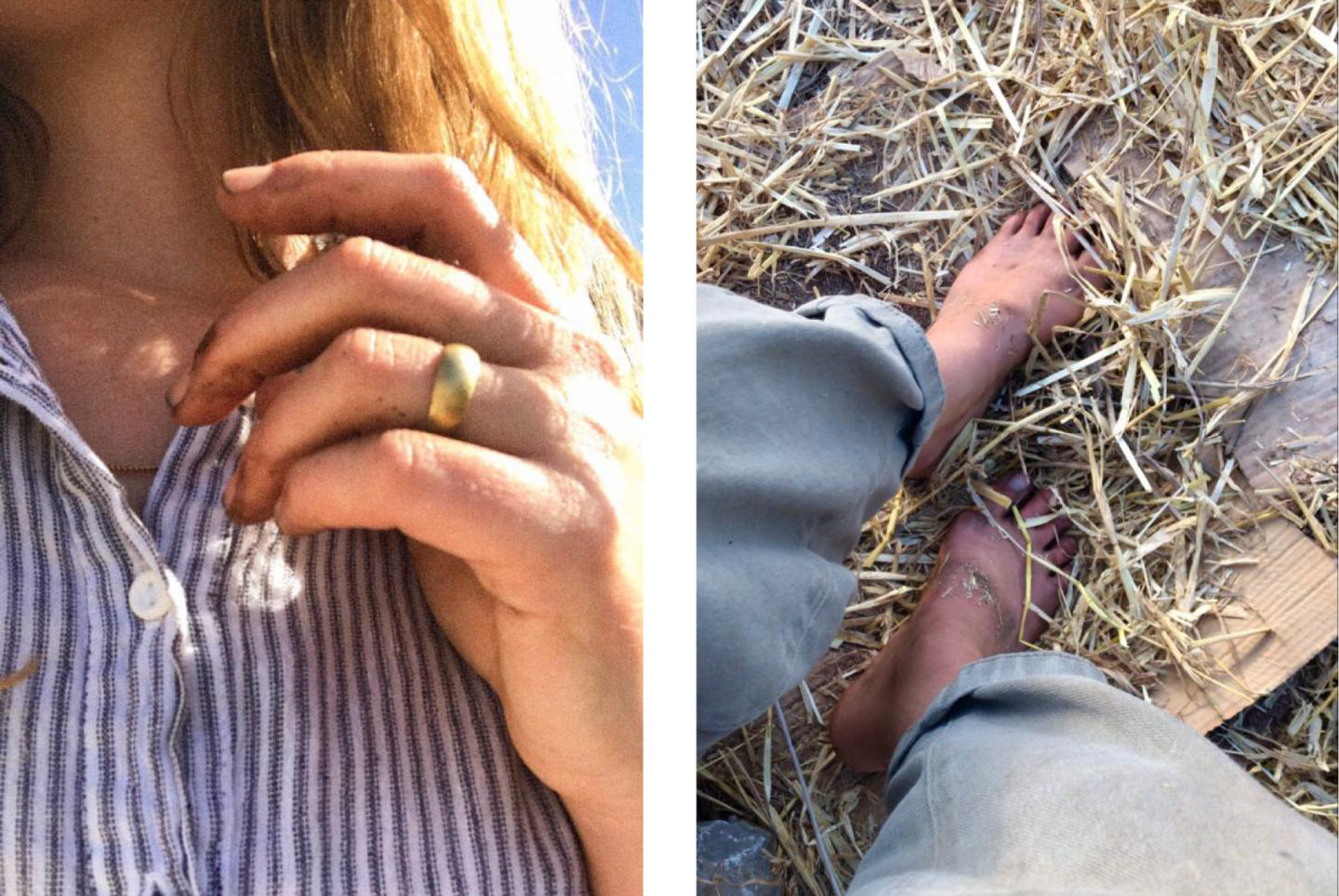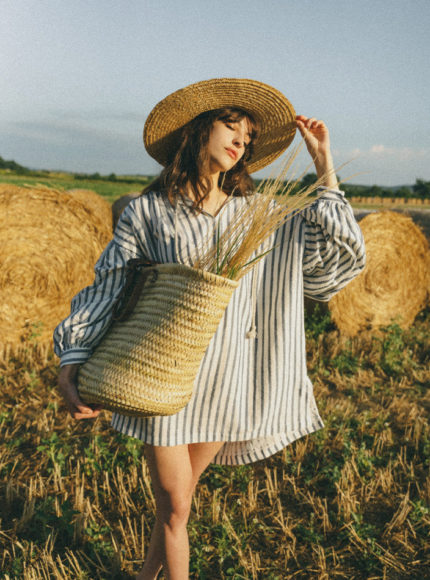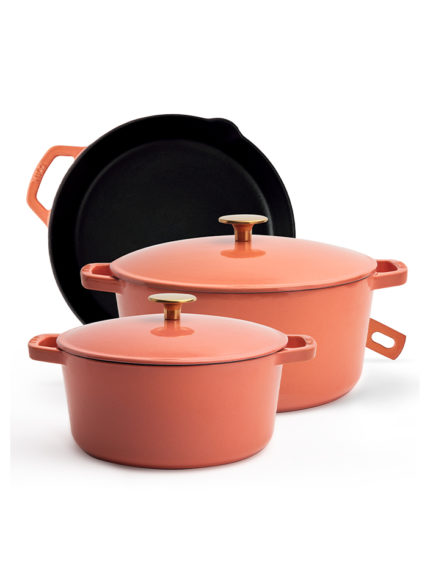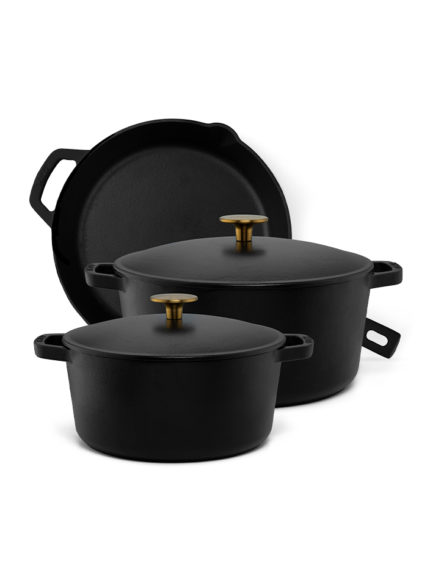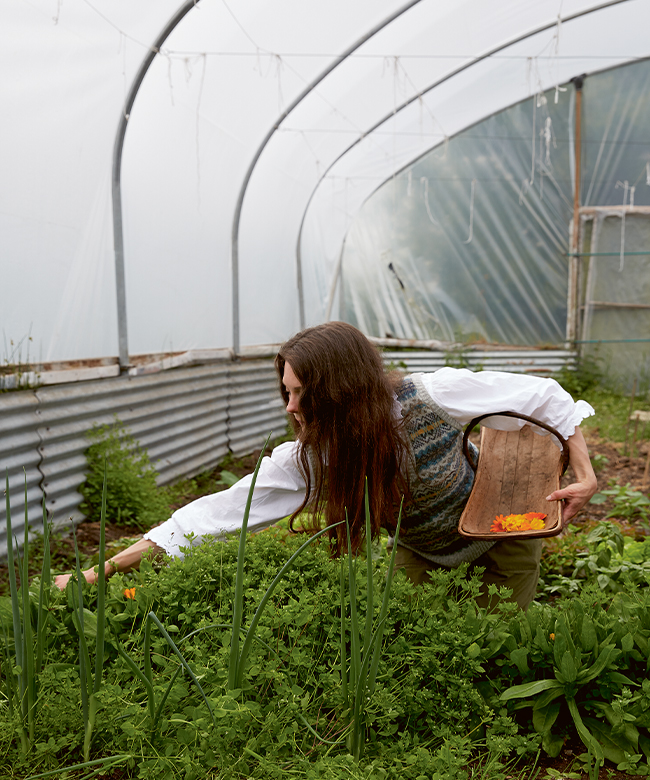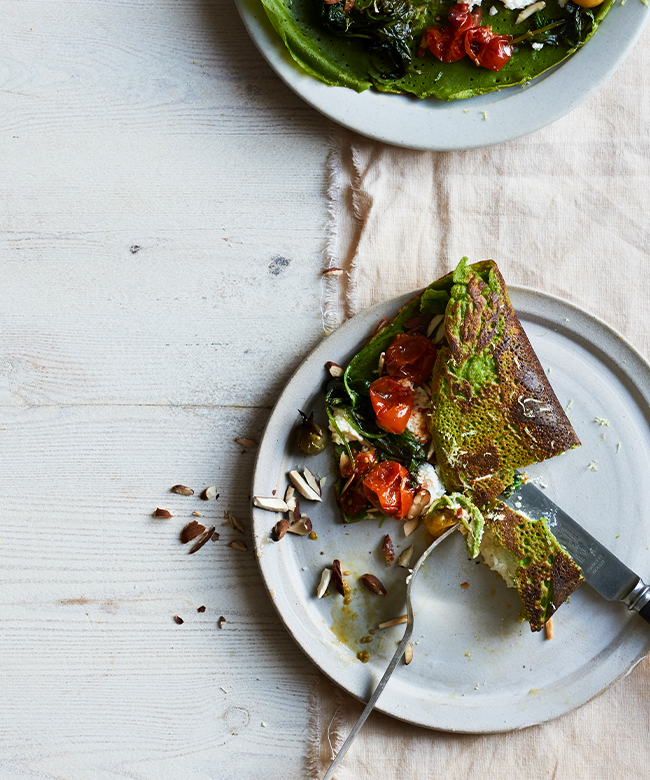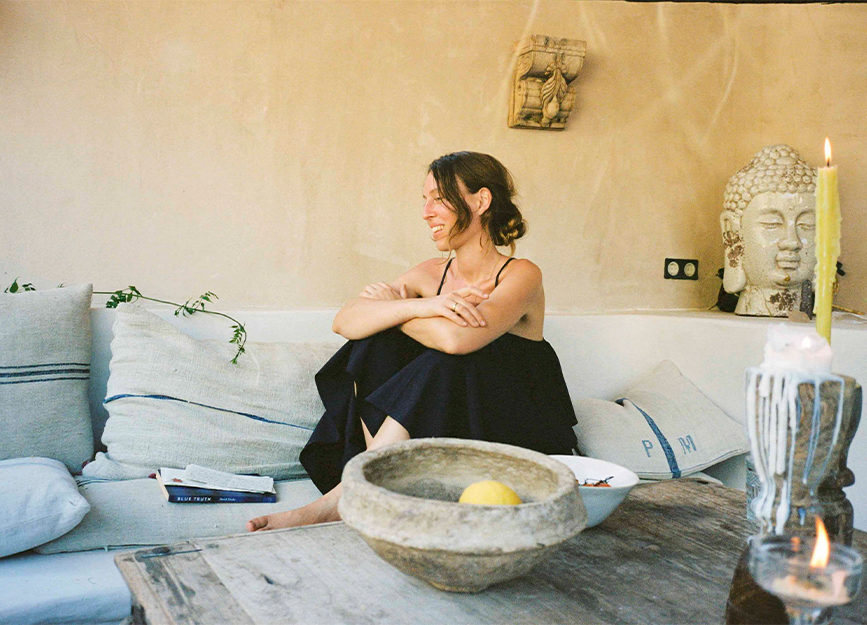

@rociosgraves by Cecilia Renard for Shaina Mote
@rociosgraves for The Ones
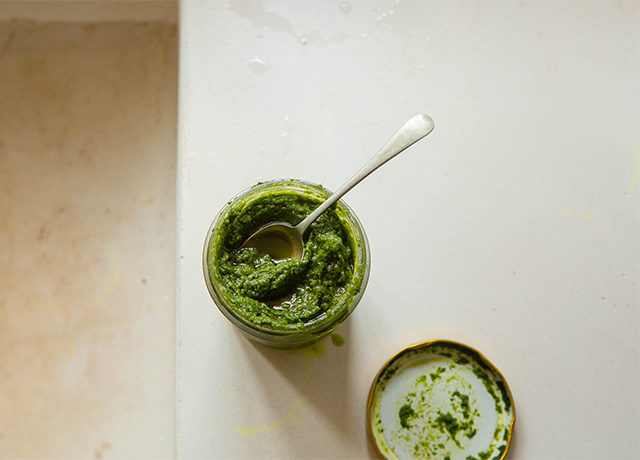

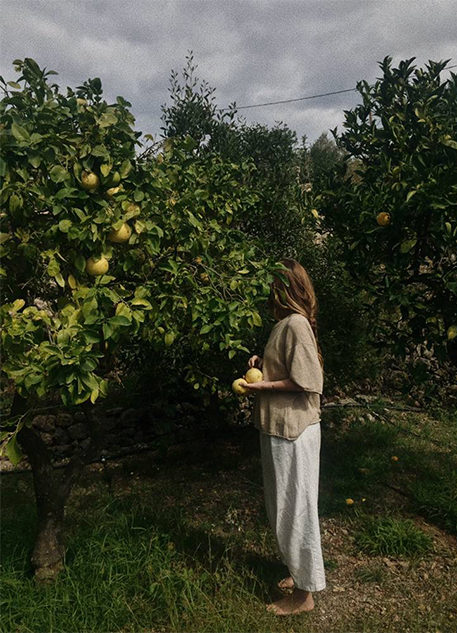

@rociosgraves by Laura Wencker
Food & Garden
Slow & Sustainable Food with Rocio Graves
With food growing and home cooking being the thread that runs through her life, from childhood to today, Rocio Graves shares her inspiring journey beginning in Mallorca, surrounded by artists, writers and eclectics. Today Rocio spends her days as a cook, creative and facilitator whilst sharing her deep rooted message on how staying connected to the land allows us to make everyday sustainable choices that give back in many more ways than you can imagine.
“Eating is an ecological act. We can create a beautiful new world with every single meal. Our individual daily choices and actions do have an impact on the whole.”
– Rocio Graves
Can you please introduce yourself and tell us a bit about your journey into food?
I’m a self-taught cook, a creative and facilitator. I currently live in a yurt close to the land. Basking in winter slowness and getting ready to plant out the spring and summer garden. Besides cooking, I’m passionate about women’s health, ayurveda, meditation, deep ecology, food growing and music. I created Melt (@meltspaces) in 2021 alongside my dear friend Emmeline; spaces for women to come together and melt into deep rest.
Being born into a small community of eclectic travelers, artists and writers in Mallorca in the late eighties I was exposed to a variety of culinary cultures… dinner parties, collective art exhibitions, poetry readings, jam sessions and potlucks threaded my childhood. My dad’s cooking had somewhat of a reputation within the community when I was growing up — my friends loved coming over for a meal and fondly remember specific dishes and flavours to this day.
I’ve always loved food, both eating and cooking. As a small child I had an imaginary restaurant in my bedroom and as a young teen, after learning how to make a variety of Japanese dishes from a dear family friend from Osaka, I set up a sushi stall outside our house on market days.
It wasn’t until later in life during my mid twenties, after my university studies in Human Rights, that I began to work with food. First in food photography and recipe development parallel to sharing online. Then I began to host private dinners at home, cooking for private clients and on retreats. Though my love for food and cooking has always been present, I developed an interest for studying and learning about food as a path to healing inspired by my own experience of suffering from an autoimmune condition over twelve years ago.
You grew up on the island of Mallorca, how did that connection to nature inspire your connection to food?
I’ve never reflected on this question before… in my mind food and nature are one and the same. I feel that my connection to these was present from birth.
My first spoken word was ‘lula’ referring to the moon. One of my earliest memories is watching the cherry trees in our garden bloom and see the flowers turn into fruit. Climbing our avocado trees all the way up to the top, harvesting strawberries and figs. Once a year a group of friends and family would gather at my grandparents olive grove to collect olives with bamboo canes, nets and straw baskets. The olives would then be taken into a village nearby to be pressed into olive oil to be shared between us. It was normal for people to have a kitchen garden, chickens and some fruit trees in our village. My grandmother had a beautiful sunny garden with views of the Tramuntana mountains and the sea, watered with an irrigation channel. I vividly remember the awe of digging out potatoes for the first time, harvesting broad beans and eating them raw with dirt covered fingernails. As a child I went to a tiny primary school with no more than forty children. We had a communal vegetable garden which we all took care of, had cooking classes as well as yoga and paper maché workshops. In the summer I’d be out climbing trees and stone walls barefoot with friends, swimming in the sea for hours on end until our skin was wrinkly. Mom and dad were craftsmen who produced bibliophile editions from their printshop at home. Home cooked meals were the norm. Eating out was a rare occasion and friends would often “spontaneously” appear around dinnertime. Dad would collect vine leaves from my aunt’s garden once a year to make my favourite ‘dolmades’. We had a compost pile in our back garden and our pantry was always stocked up with jars of homemade chutneys, pickles and jams. They were our first thought when choosing gifts on special occasions.
How has gardening played a role in your food philosophy?
Being intimately involved in the process of growing food and developing a relationship with land over the four seasons, has allowed me to notice the subtle changes and shifts that take place. The new leaves sprouting in early spring, flowers forming and blooming, drying up and becoming tiny fruits. Watching those fruits grow and ripen is such a trip. I have become aware of how much love and life force goes into this process of growing and ripening. A watermelon seed will grow a watermelon plant with potentially two, three or more watermelon fruits; each fruit containing anywhere from fifty to a hundred seeds or more. A watermelon carries within it the expression of abundance and generosity. So do all seeds. I have not met a human being that isn’t overcome by a sense of awe and excitement when taking part in this transformation from seed to fruit or leaf or vegetable. I have found the deepest solace in gardening in times of heartache, depression or despair.
This hands-on understanding of the alchemical process that takes place for food to grow informs everything I make in the kitchen. It also informs my discernment in knowing what is real food and what isn’t. A knowing that we are not separate from nature, our bodies speak the language of the soil, the earthworms, the bees, the rain and the moonlight.
You spent time in India learning about regenerative farming and seed saving under Vandana Shiva which must have been incredible, can you tell us a bit about that experience?
During my late teenage years Vandana Shiva and her friend Satish Kumar would visit Mallorca every October over a number of years to lead a gathering under the name Soil, Soul and Society. A group of 50 or so were invited to gather over three full days at Guillem Ferrer’s beautiful off-grid home in the mountains. Guillem is a family friend, activist and visionary. Someone who has influenced me greatly. My parents and I made it a priority to be there every year, it was a time to feel deeply connected to community and to a bigger vision. We would come back home feeling very full and hopeful for the future. Conversations on Earth-centered education, sustainable living, eco-feminism and spirituality. Many projects sprouted from those gatherings. From earth schools to permaculture farms, education centers and more.
In 2006 as I was approaching the end of my secondary education I felt very confused and uninspired, unsure of whether university was the right choice for me. My parents encouraged me to take a gap year to travel and explore. Soon after, I felt a spark of inspiration to travel to the south of India and study Ayurveda. As I was researching various options I received news that Vandana Shiva’s farm school in India, Bija Vidyapeeth, was opening a three month long program for gap year students for the first time. I initially rejected this option — to be honest, the idea of learning about composting practices and seed saving didn’t excite me at the time. But since my plans to study Ayurveda in south India weren’t flowing I decided to go.
I traveled there with Ken Martin (a wonderful university professor who also was a close friend of Satish and Vandana). A little while into my time there, three english boys who had been traveling through India joined us at the farm. Daniel, Jonathan and Merlin (Sheldrake). Their deep curiosity and thirst for knowledge inspired me to apply for university upon my return.
During our time at Bija we learnt practical skills on composting, natural fertilisers (using cow’s urine), vermi-compost, seed saving… we collected chamomile flowers, carried cow dung on our heads… practiced yoga, bonded with the staff and farmers, met many travelers, attended short courses led by Vandana and others, traveled to mountain villages to meet farmers who were collaborating with Bija in their seed saving campaigns and more.
Living simply in community and close to the earth was profoundly enriching. This was not my first time in India, I first visited at age eleven with my parents so I was familiar with the culture, though being in one place for three months meant I was able to nurture a relationship with land and people in deeper ways. I have been back a number of times over the years and really cherish reconnecting with some of the staff who have been there for over fifteen years now and seeing how Bija has grown and evolved. My last visit was in summer of 2019, I visited for a week on my way home after two months in the Himalayas near Gangotri. It was mango season so we had mango smoothies for breakfast daily and the fields were covered in water ready for rice to be planted. I strolled around the farm with a warm chai on hand, my favourite was seeing the herb garden in full abundance. Fragrant Shyama and Rama tulsi were my personal favourites.
What were the main principles you brought back with you to Mallorca from that?
I vividly remember walking to the nearby village to phone my parents sharing in excitement all that I was learning. I incessantly pushed for us to have a cow in our land back home after witnessing how the farmers would turn cow dung to compost with earthworms, or how they’d use cow urine to create natural fertiliser. They also dried cow dung under the sun and used it as kindling when cooking on an open fire.
The main principle that stuck with me was that learning how to grow food is of utmost value and importance. Knowing how to create compost, build healthy nutrient dense soil and seed saving are essential skills. Not only this, but that engaging in gardening is healing, it reminds us of who we are and of where we belong. A sense of relief, a place to rest our minds and hearts.
I learnt first hand that there are systems (Capitalism, Patriarchy) in place which disregard the sacredness of mother earth. Systems that destroy earth for profit, systems that believe humans are above nature and treat it as a commodity. I also learnt that there are many people doing amazing things. That the future is hopeful.
That ultimately, the way forward is in devotional relationship to the land (that access to land should be far and wide). That hands and hearts coming together can create big changes.That no one is coming to save us. I was heartbroken to hear of many farmers in India committing suicide after being persuaded into debt by Monsanto. This inspired my choice to study Human Rights in London. I wanted to learn more and find a way to help.
You also studied Human Rights in London – what did you learn about in the context of farmer’s rights and how those currently stand?
At the end of my three year course I had come to the realisation that Human Rights declarations are well intended but ineffectual; riddled with legal loopholes. I realised that my contribution to make change was going to come from outside the legal structure. I don’t know how the situation stands currently as my studies took place 16 years ago. To learn more about farmers rights in India I recommend delving into Vandana Shiva’s work and looking into her non-for profit Navdanya for up to date resources.
“Knowing how to create compost, build healthy nutrient dense soil and seed saving are essential skills. Not only this, but that engaging in gardening is healing, it reminds us of who we are and of where we belong. A sense of relief, a place to rest our minds and hearts.”
– Rocio Graves
And what about water issues, how is this connected to both food and human justice?
Water has become a commodity, yet our relationship with water and access to clean spring water is vital to our human life and spirit. It is a relationship that needs to be protected at all costs together with access to seeds, land and sunlight. We are made of water, water doesn’t belong to us, water is who we are :). Water is our source of life and no corporation or entity should have a right to privatise it, pollute it, or deny us access to it.
The fact that most people only have access to tap water (highly polluted with chemicals for the most part) or bottled water is extremely concerning. Clean spring water should be free and accessible to all. I make it a point to harvest spring water as much as I possibly can, always in gratitude and prayer. I highly recommend reading the book ‘Water Wars’ by Vandana Shiva to understand this issue comprehensively.
Why do you focus on plant based eating in terms of sustainability?
What I focus on is locality, seasonality and real food. For the health and sustainability of the environment, small farmers, local economies and our bodies. Over 90% of the food consumed in Mallorca is imported. Most people shop for food in big supermarkets. I remember how a couple of years ago cargo ships were not able to make it to Mallorca for a couple of days due to a heavy sea storm. The fresh produce section at these supermarkets had empty shelves, whereas our small local farm shop was brimming in abundance. A shift in our shopping habits into supporting local farmers instead will encourage more land being destined to agricultural practices and in turn promote a healthier more resilient community, environment and economy.
Favouring fake meat is a rational ethical choice, not a rational choice for health or sustainability. In the words of Vandana: “It is possible and healthy to have a whole and nutritious diet based on biodiverse plants. But do not become subscribers to Mr. Bill Gates’ fake food empire. Please do not serve a bigger evil just because you want to avoid animal products. The same Tycoons who created the factory farms are the ones who are investing in fake meat, so don’t see these as alternatives because they are both sources of profit for the same actors”.
With every single meal we can nourish ourselves while being in right relationship with the earth. In this way, eating is an ecological act. Our individual choices and actions are undoubtedly entwined with the wellbeing of the whole.
How important is organic to you when talking about cooking and our food choices?
What is most important to me is to eat real food. Real food to me is that which is provided by the earth in its pure form, free from chemicals or genetic manipulation. Food that is grown in small farms using methods and practices that care for the health of the soil and for biodiversity. Food that the body understands, for our body is of the body of the earth. The body understands an apricot grown in a tree in summertime. It understands this food and it knows how to relate to it. The body is confused by most food products found in stores.
Foods that are sprayed with chemicals are known to be a fundamental root cause of disease. Cancer, gut issues, autoimmunity and more. It is also known that small farms focused on polyculture experience increased biodiversity which is essential for a healthy ecosystem, for healthy soil. Furthermore, small farms have a much higher yield than big mono cropping farms. They also grow produce which is nutritionally rich due to their soil being rich in micronutrients and more.
It is important to support small farms over big farms. Shop at farmers markets as much as possible, everyone will benefit. Plus it is such a beautiful thing to experience! Seeing the bounty of colourful produce that has been freshly harvested is such a gift.
It’s also worth mentioning that many small organic farms don’t have the organic grower certification simply because of financial inaccessibility. The organic food movement has become commodified. Create conversation with farmers, ask about their farming practices. Ask if you can visit their farms! If you crave touching the soil, offer to volunteer. Offer to save seeds from the fruits and veg you buy from them. Farmers need a lot of love, support and appreciation. It is such hard work and in most cases it is paid very poorly. Few things are more important than farmers who are thriving.
I have built beautiful connections with a few local farmers by shopping from them over the last nine to fifteen years, and I now also work with them sourcing produce when cooking for clients. I am truly grateful to them.
How important is seasonality and locality to you?
Eating local and seasonal foods is single handedly the most impactful choice we can make when it comes to sustainability alongside growing our own food. I invite you to look into the work of Local Futures for more knowledge and inspiration on the ‘localisation’ movement. It’s not about being 100% aligned with this principle, it’s about bringing awareness to our daily choices and choosing with coherence whenever possible.
Eating seasonally to me signifies humility and interconnectedness to the land. The earth is our mother in the sense that she sustains us. She knows best. We can trust that she provides what is best for us in every moment. There is a reason watermelons grow in the heat of summer, we need hydration, electrolytes. Us humans desiring watermelon or cherries in winter time and having it flown across the world to us is a testament to our greed and disconnection.
Furthermore, the food that small farmers grow locally to you will be highest in nutrients and bioavailability. What is good for the health of the planet is also good for our personal health. One can’t thrive without the other because we are interrelated.
If you could share one favourite recipe from your online resource, The Ones, which would it be?
It would have to be the Herb Chutney. This herb chutney is a favourite way to pack a lot of those good medicinal herbs into a jar. I always make sure to pick several bunches of herbs at the farmers market and make a jar of this chutney, whilst they are still fresh and vibrant, for the week ahead. It’s delicious with parsley and coriander, I imagine adding other herbs like basil or dill to these would work really well too. I recently served it to dear friends alongside a big pot of chili sin carne (frijoles rojos) and rice, it was the perfect companion. The jar was licked empty! Sweet, savoury, tangy and herby. Delicious.
Herb Chutney Recipe by Rocio Graves (from The Ones)
(makes two cups)
120 grammes fresh parsley or cilantro or a mix of both (one big bunch, stems included)
3/4 cup cold-pressed olive oil
4 tbsp apple cider vinegar
4 Medjool dates, pitted
15 grammes fresh ginger, peeled
1/2 tsp salt
Roughly chop the bunch of herbs (stems included) and toss them into a good blender with the other ingredients. Process for a minute or so until completely smooth. Taste and adjust accordingly — you might want to add one more date or more salt. Scoop into a medium-small glass jar, cover with a drizzle of olive oil and store in the fridge. Keeps well for one week.
What’s one of your favourite plants to use in cooking?
My favourites change with the season — at the moment i’m really enjoying shredded beetroot cooked in a specific way.
First I cook spices such as cumin, ajwan, fennel and mustard seeds into ghee (or coconut oil) on medium heat on a pan for a couple of minutes, then add the shredded raw beetroot. I coat the beetroot with the spice infused ghee and allow it to cook on medium to low heat for ten minutes or so; when the beetroot starts to release water and steam I add salt and ground spices (cumin, coriander, ginger etc). I mix well and continue to cook for another ten to fifteen minutes until the beetroot is thoroughly cooked and soft. I serve this with a cardamom spiced rice, some fresh coriander (or the herb chutney) and a squeeze of lime juice.
And finally, if you could share some simple tips for our audience who may want to get into sustainable eating, what would they be?
I really try to take off any pressure I might feel about ‘saving the planet’. A more nourishing perspective is to see this as an opportunity to better love ourselves and the earth. Not because ‘shit, we are facing mass extinction’ but because we love this place. We want to do what is right and loving. To focus on deepening our relationship with the land that holds us. With the sun and the moon. Love and care for what is around us. One does not need to go to absurd lengths in the name of sustainability. By living simply we realise that…we don’t need much to be happy.
I really love the concept of ‘sattvic ecology’ as described by Satish Kumar in his book ‘Spiritual Compass’ (which I highly encourage anyone to read):
‘(…) fear is a poor reason for being an environmentalist. Sattvic ecology provides a more profound and solid reason for our environmentalism: a conviction that the Earth is our only home, and living in harmony with her is good and sufficient in itself. A simple and sattvic way of life, respecting the intrinsic value of all living beings — humans and other than humans — is the proper way of life. Global warming or no global warming, caring for the Earth is our spiritual obligation. (…) For the majority of people in the world, caring for the Earth is a way of life rather than a way of crisis management.(…)’
What is the intention behind our actions? Are they coming from fear or from love? I think this is a really important question to consider within the ‘sustainable living’ conversation. Living in harmony with the Earth should be natural. How have we come so far from this understanding? How have we come to need others to remind us that this Earth is a sacred entity? When we remember this in an embodied way (beyond intellectualisation), we will relate to her in devotion and reverence, like we would our mother.
Within this devotion we will learn to cook beautiful food with fresh ingredients, we will prioritise cooking as a spiritual practice that is intrinsic with being human, rather than thinking of it as a ‘chore’. Within this devotion we will learn to turn food scraps into soil through composting methods. We will realise that there is no such thing as ‘food waste’, that what comes from the earth is meant to return to the earth. Within this devotion we will remember. Within this remembrance we will do and choose that which is loving for ourselves and in turn, for the earth.
My recommended resources for further exploration:
Rocio’s recipe collection The Ones
Bija Vidyapeeth (Vandana’s farm/ Earth University in India)
Navdanya (Vandana Shiva’s organisation)
Words by Rocio Graves @rociosgraves














